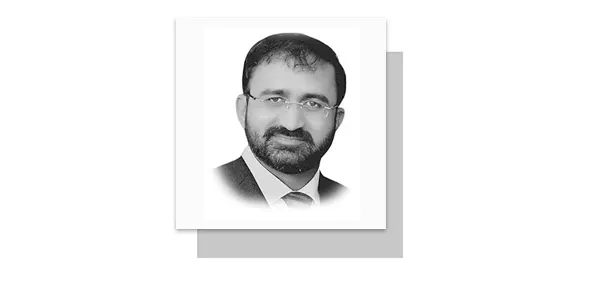Historically, religion, culture and civilization have always progressed in harmony with one another. Undoubtedly, the development of culture is not possible without the foundation of religion. This interdependence and amalgamation of religion and culture form the core of Dr. Allama Muhammad Iqbal’s perspective on Muslim cultural and moral values.
For Iqbal, the most significant aspect of Muslim life is its culture and moral princi-ples. He emphasized that for the development of Muslim society on a global scale, the focus should primarily be on culture and morality rather than the political or economic influence of the state.
Though, Iqbal had a deep insight about the western view, still he formulated his though in accordance with the guidance provided by Quran and the Last Prophet (SAWW). As, in the modern-day world, morality of the individuals is based entirely upon their own choices and orthodox pre-conceptions. Furthermore, morality is dependent upon the culture also it seems to be conservative in the context of modern era. The followers of tra-ditions are at conflict with the followers of modernization and considers them to be fundamentalists. However, the traditionalists are aware of this fact that their system of value is resilient against any sudden change. However, the trends and fashions of the modern age thought not completely inac-curate transmits within the generations.
This review paper thus mainly focuses on exploring the philosophy of Dr. Al-lama Muhammad Iqbal about the culture of Muslims along with their morality. Additionally, it serves as a cornerstone for understanding the contemporary state of the Muslim world through the lens of Iqbal’s philosophy. Though it does not determine the constitutional factors of cultures and traits of Muslim society however, it is an attempt to exhibit the critical appraisal of Dr. Iqbal about the nature of culture of Muslims as well as the fundamental ideolo-gies which are motivating, inspiring, and directing the Muslim societies in their pursuit of moral values and culture. The focal discussion of this re-view article is regarding the personality of Dr. Allama Muhammad Iqbal together with his philosophy about the culture of Muslims and their mo-rality. Furthermore, the growing trends of the contemporary Muslim world are also analyzed in terms of comparison with the view of Iqbal. Allama Iqbal (1877-1938) was a reverent Muslim, significant philosopher, proficient poet, as well as impelled activist. Different people were connected to him differently.
Some people were attached to him because of progressiveness, religious modernism, and devotion towards Islam, whereas to some people he was an iconic westernizer. The nation of Pakistan, however, considers Al-lama Iqbal as a father of their homeland i.e., Pakistan. In the context of academia, Allama Iqbal is an enchanting paradigm who reconciled the ideas of Muslims with contemporaneousness. Allama Iqbal is kindred to Imam Ghazali of the 20thcentury, one who synthesized modernity, mysticism, and Islam. Additionally, Iqbal encouraged the notion about the stated based upon religion without stimulating clichéd and obnoxious representation of vicious theocracy.
The Reconstruction of religious thought in Islam is the masterpiece scripted by Dr. Allama Muhammad Iqbal. In this scripture he has discussed just a little bit about Islam, may be due to the fact that this manuscript was initially introduced just as a lecture. Whereas, in his poetic scripture-Ramooz-e-Bekhudi i.e., The secrecies of altruism, Dr. Iqbal has written a complete section with the title of “Pillars of Islam’. Rather than de-scribing Islam, he has analyzed Tawheed, “the entirety and solidarity of Allah”, together with the notion of Prophecy in the religion of Islam. Both of these conceptions are significantly important factors of the integrated and global Islam that Allama Iqbal pursues. Moreover, in his scripture, “The reconstruction of religious thought in Islam”, Iqbal delineates Tawheed as so-lidarity, freedom, and equality”. According to the believes of Iqbal, believing in the uniqueness of Allah is something that results in believing in indi-vidualism. Also, it is the reflection of solidarity of Allah i.e., Tawheed in the be-liever. Furthermore, Iqbal implicates this notion in every human of the commu-nity in another masterpiece, Baang-e daraa.
The vision of Allama Iqbal about Islam is focused on unifying every believing Muslim living individually or com-munally. Paradoxically, might be the Islam of Iqbal is not just intellec-tual, but potential religion which is stimulated by the objectives inclusive of self-empowerment, community-empowerment, and liberties of the poli-tics. Allama Iqbal ascribes the orientation of Islamic actions to those of Prophet Muhammad Mustafa S.A.W.W and attributed Him to be the very first spirituality positivist, pragmatist, as well as psychologist. In endorsement of his thoughts, Iqbal referred to the various sayings together with the deeds of Holy Prophet (PBUH) i.e., Hadiths of Prophet P.B.U.H. Iqbal emphasizes the virtues of the Prophet (PBUH) as the testimony for his personality as Insaan-e-Kaamil, specifically underpinning creative potential of the spi-rit of the Prophet (PBUH).
——The writer is PhD in Islamic Studies, author and academic writer & lecturer at NUML, Islamabad.










